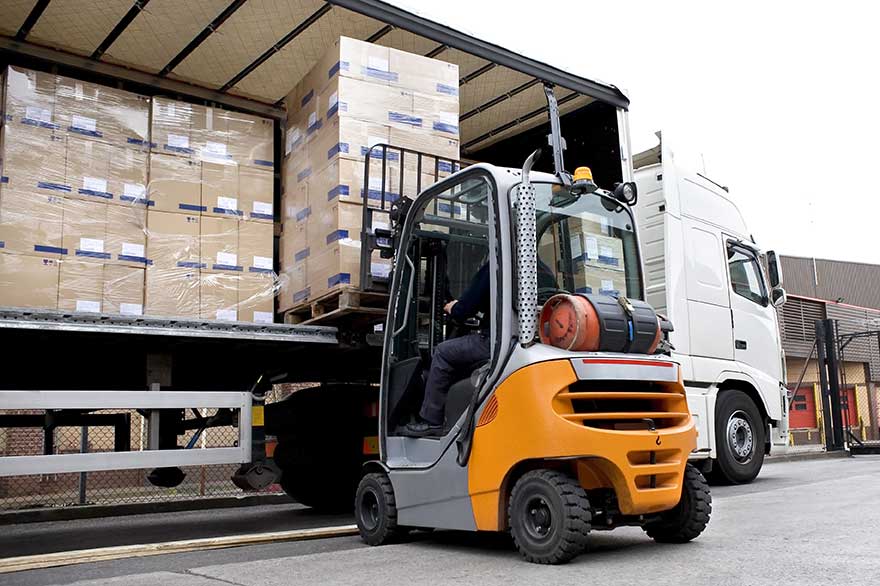The importance of forklift training and certification is important in manufacturing industries.

Forklifts take up a good part of the operations in manufacturing industries. They’re applicable in cargo management, product transport, and warehousing. Since forklifts are vital in operations, the operators require good technical know-how to use them properly.
Forklift operators are expected to obtain training and certification before operating these machines. Industries where forklift operators weren’t certified before recruitment can invest in an online forklift training course which all operators should be mandated to undergo.
The importance of these training and certifications for industries cannot be understated. To clear all doubt, here is why it’s important to obtain training and certification for industries:
Workplace safety is a must for all heavy industries where forklifts are a major part of operations. Forklift training and certification help ensure working rules and policies are followed by operators while working.
Industries where proper safety measures aren’t practiced suffer major setbacks including worker injuries, a temporary stop to operations, and poor morale of workers. Therefore, it’s important that industries make forklift training compulsory for all their operators.
Safe and healthy working conditions are required by law in various countries. These laws are enforced by regulatory bodies such as the Occupational Safety and Health Administration (OSHA) in the US and the Health and Safety Executive (HSE) in the UK — these regulatory bodies help ensure safe and healthy working conditions are created in every industry.
Forklift certification and training are some of the requirements for industrial workplace safety. Non-compliance with these regulations evidenced by untrained and uncertified forklift operators can attract huge penalties. Such penalties can be a hefty fine up to $100,000+ per violation and a court injunction to stop operations until an abatement is verified.
Industry work is extremely tedious. Thus, everything that can encourage workers and ultimately benefit the company should be done. Trainings and certifications are examples of investments that can increase workers’ skill and morale.
During forklift training operators are exposed to new and more effective ways to go about their work. With the excitement and freshness of the new knowledge, workers will go to work reenergized and more equipped to face their daily tasks.
The certifications also add to the resume of the workers. This sends a message to the workers that the company is committed to improving their level of skill. Hence, they’ll be more ready and committed to work.
Industries are also very concerned about productivity at work. However, productive work time is lost when an operator lacks the required training to use a forklift. They tend to take longer to get items from one location to another and operate the machines less efficiently.
On the other hand, forklift operators who are properly trained and certified can get their jobs done faster and better. Hence, they’re more productive at work and can provide the needed job satisfaction for employers.
Business operations for industries will continue unhindered when certified operators operate forklifts. This allows machines to be used optimally without the risk of damage or total breakdown. If any of this happens, work can be affected negatively and risk getting stopped abruptly.
Also, regulatory bodies carry out infrequent checks on industries and businesses. During such checks, one of the required documentations for workers in industries is forklift certification. A possible penalty for industries with workers that aren’t certified is a closure of the factory until abatement is verified. Adequate training and certification are the way to avoid such unpleasant interference with operations.
Problems including oil leaks, engine damages, and machine grounding can result from the wrong use and care for forklifts. These result in higher maintenance costs for companies and sometimes replacement costs — all of which are due to unqualified operators handling the machines.
Maintenance costs can be kept in check when qualified operators use forklifts. Also, the life of the machine can be extended due to proper use by the right operators. Hence, reducing the frequency and cost of repairs and replacements.
Industries can’t completely eliminate the presence of work hazards. They’re only able to try and achieve the highest possible safety conditions in the workplace. This is why they take out insurance policies to cover unexpected work hazards.
Forklift certification can be helpful when companies sign up for insurance for their workers. The insurance premiums determined by insurance companies are lower when the company has forklift certifications.
One of the great ways to ensure workers are safe at work is to get them trained and certified to do their work. Other benefits for the industry include regulatory compliance, higher worker productivity and job satisfaction, unhindered business operations, lower maintenance costs and lower insurance premiums.

Terra Foley
Terra Foley is a full-time blogger who writes topics under the sun. In between researching and writing content, Terra loves to travel to de-stress.
Scott Ellyson, CEO of East West Manufacturing, brings decades of global manufacturing and supply chain leadership to the conversation. In this episode, he shares practical insights on scaling operations, navigating complexity, and building resilient manufacturing networks in an increasingly connected world.